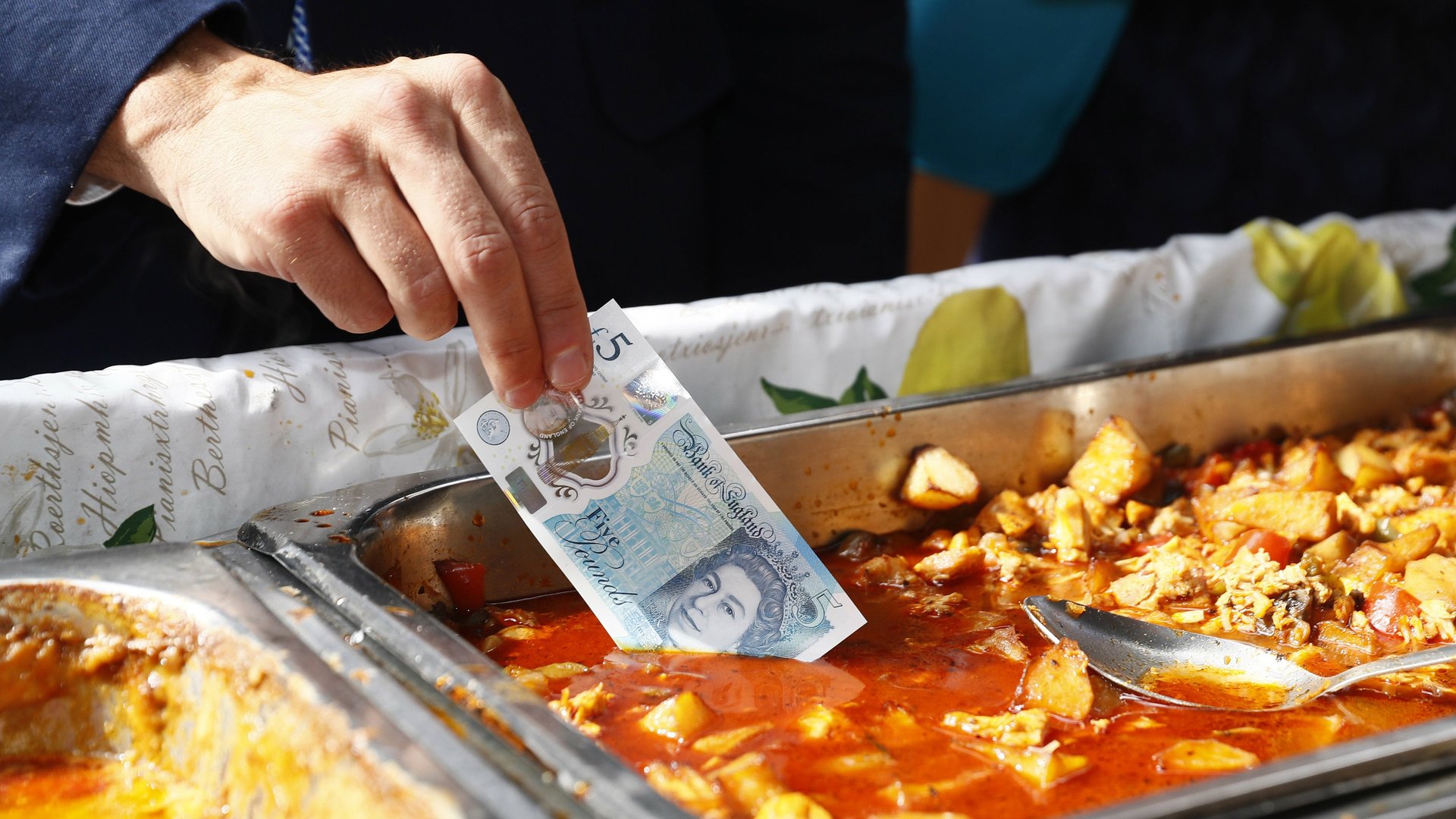The UK’s new £5 notes are made with animal fat
In September, the UK got new plastic banknotes, upending 300 years of history and challenging the primacy of paper money. The Bank of England began the switch to polymer banknotes because they are supposed to last longer and offer more security features. Collectors were delighted and spent thousands of pounds on the notes; other people have been frustrated, as the new money sometimes gets stuck in machines and shrinks in tumble dryers.


In September, the UK got new plastic banknotes, upending 300 years of history and challenging the primacy of paper money. The Bank of England began the switch to polymer banknotes because they are supposed to last longer and offer more security features. Collectors were delighted and spent thousands of pounds on the notes; other people have been frustrated, as the new money sometimes gets stuck in machines and shrinks in tumble dryers.
But there’s one thing the Bank of England failed to mention until now: The new banknotes contain animal fat.
The news emerged on Twitter, when the central bank tweeted a reply to questions about the money’s ingredients.
Tallow is to beef or mutton what lard is to pigs—rendered fat that is solid at room temperature. It’s frequently used in candles and soaps.
As you can imagine, vegans and vegetarians were unhappy to learn that the product is used in their money.
More than 20,000 people have signed a a petition demanding the removal of animal fats from the plastic banknotes. It reads:
The new £5 notes contain animal fat in the form of tallow. This is unacceptable to millions of vegans, vegetarians, Hindus, Sikhs, Jains and others in the U.K.We demand that you cease to use animal products in the production of currency that we have to use.
Doug Maw, who started the petition, said he was “disgusted” and wouldn’t use the banknotes.
Unlike candles and soap, vegans can’t easily abstain from using cash, even in an increasingly cashless society. So far, the Bank of England has distributed 440 million of the plastic banknotes. By May, you won’t be able to use the old one. And by 2020, all of the country’s banknotes will be replaced with new polymer ones.